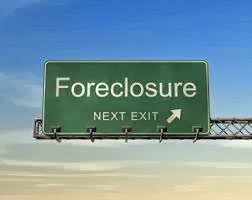 A recent decision in a case in upstate New York discusses issues relating to the denial of an application for a foreclosure judgment. In a foreclosure case, the plaintiff, who is usually a bank or other lending institution, must apply to the Court for a judgment. Often, after the case has first been referred to the settlement conference part, and then, in Westchester County, assigned to the Mandatory Appearance Part, the plaintiff will move for summary judgment.
A recent decision in a case in upstate New York discusses issues relating to the denial of an application for a foreclosure judgment. In a foreclosure case, the plaintiff, who is usually a bank or other lending institution, must apply to the Court for a judgment. Often, after the case has first been referred to the settlement conference part, and then, in Westchester County, assigned to the Mandatory Appearance Part, the plaintiff will move for summary judgment.
In a summary judgment action, the moving party argues to the Court that there are no issues of fact which would require a trial. This may occur in several situations. The first is when the defendant fails to file an Answer to the foreclosure Complaint. If the defendant’s time to answer has expired, then the plaintiff may move for a judgment of foreclosure and sale on default. However, the plaintiff must show to the Court that it has met the elements of proof to obtain a foreclosure judgment.
The first element is to show to the Court that they are the proper party and the holder of the mortgage and note in question. This is usually done by having an officer of the lender submit an Affidavit in Support of the motion showing that the mortgage is being held by the plaintiff. In support of the Affidavit, complete copies of the Mortgage and Note should be annexed as exhibits. In addition, if the loan has been assigned to a different lender than the one listed on the Mortgage and Note, complete copies of the assignment documents should also be annexed as exhibits.
The second element is to show that the mortgage has been recorded. This is shown again in an Affidavit, and a copy of the mortgage with the recording information should be annexed thereto. Finally, the motion must allege that the borrower has defaulted on the mortgage. Most summary judgment motions will provide a payment history for the borrower, and therefore will show that the borrower is in default in his payments as of a certain date.
Once these basic elements are shown to the Court’s satisfaction, the Court may grant summary judgment to the plaintiff. In a situation where the borrower has failed to answer the Complaint, the moving party should also submit legally sufficient proof that the borrower was formally served with the Summons and Complaint in the case. By failing to submit a timely Answer, the borrower is risking the possibility of summary judgment being entered against him.
Another situation occurs when the borrower does submit a formal Answer to the Court, usually through their attorney. The Answer would normally contain defenses to the foreclosure action. Examples of such defenses may be that the borrower is not in default, that the plaintiff bringing the action is not the actual holder of the Note and Mortgage, or that the proper pre-foreclosure legal notices were not provided to the borrower.
In these cases, the plaintiff must rebut these defenses in his motion for summary judgment. Assuming he is able to do so, the Court will usually grant the motion and issue a formal written order granting a judgment of foreclosure and sale. Together with further Court proceedings, this will eventually result in the property being sold at public auction at the Courthouse of the county in which the action is brought.
Whether you are a lender seeking a judgment of foreclosure and sale, or a homeowner looking to defend against a foreclosure action, our attorneys are available to assist.
 New York Real Estate Lawyers Blog
New York Real Estate Lawyers Blog

